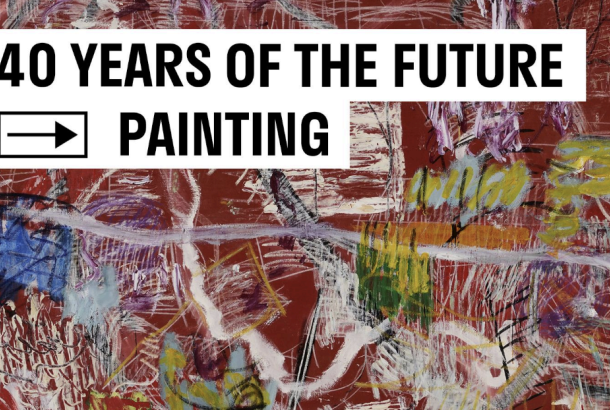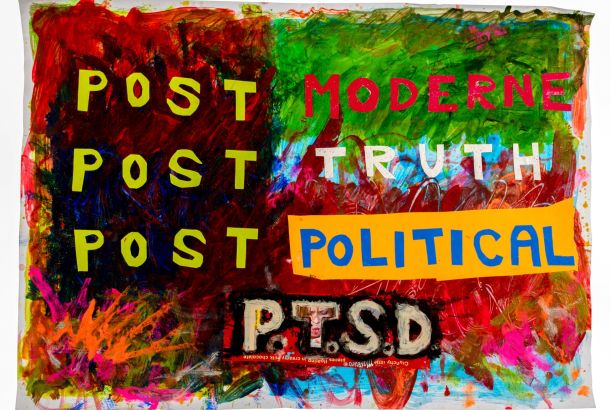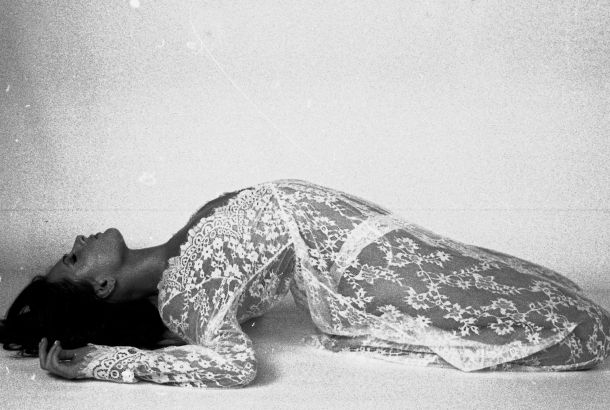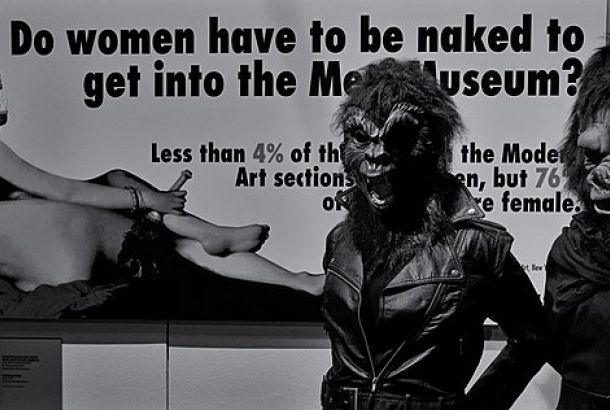‘Not another ‘class conscious’ exhibition, augmenting the guilt of a middle-class crowd,’ I lamented as I joined herds of heals and tweed at the opening night of Grayson Perry’sThe Vanity of Small Differences.
The opening night recruited a predominantly white, middle to upper class crowd. With complimentary wine in hand and British class issues at hand, the irony of the situation was palpably demoralizing. The plodding ritualism of the event – keeping to lowered tones of reverence for the absent artist and respecting the gallery space while sipping our Bordeaux – felt like a disservice to Perry’s arresting excavation into class and taste in modern Britain.
Six epic tapestries, one acne-ridden protagonist and a narrative reflecting modern class politics – The Vanity of Small Differences is an emotionally charged shout-out to British audiences not to be fooled by neo-liberal mantras on social mobility. On the surface, the pieces follow Tim Rakewell’s rocket ascent from working class techno-genius to nouveau riche celebrity status, as signified by a shift in visual symbols from a hoover to a Ferrari. The Vanity of Small Differences is, however, more directed at the subtle differences of taste that appear at various levels of middle class positions – as revealed in Perry’s Channel 4 documentary All in Good Taste, which is also exhibited.
Tim’s character explicitly parallels William Hogarth’s eighteenth century social climber Tom Rakewell whose shallow pursuit of wealth results in a tragic death in prison. We are given the chance to follow Tom’s trajectory in a series of Hogarth prints displayed alongside the tapestries. But perhaps the more subtle comment of the exhibition is its examination of ‘small differences’ in taste across the middle class palette, from lower to upper-middle class.
Perry uses Tim’s trajectory through the middle class echelons to weave a narrative between brand-obsession at the lower and upper levels, to brand-resistance seen in an image of Tim as a yuppie family man surrounded by organic jam and vintage interiors. By mapping Tim’s progression in tastes according to subtle shifts in class status, the tapestries each embody a variations on own living rooms, inviting the viewer to engage a strange game of ‘Where’s Wally?’ with familiar middle class brands and possessions, such as Cath Kidson bags and The Guardian.
Expulsion from number 8 Eden Close satirically depicts a younger Tim fleeing his working class community, clutching his iphone to his chest and looking back aghast at ‘the horror’. His branded phone is key to the overall comment of the exhibition which marks the absurdity of attributing importance to possessions throughout, not least in the same tapestry where a handbag that is afforded its own seat at a dinner party.
Finally, in Lamentation, the fickle façade of class mobility is cracked wide open as Tim lies Christ-like and exposed on the ground after a pointless crash driven by the hedonism of those over-burdened with possessions. Tim’s iphone now lies beside him, like a cracked mirror of his shattered skull. Like Tom Rakewell, Tim meets his end in the worst possible taste. While these tapestries are exuberant and humorous at times, Perry offers a necessarily black reflection of class-inflected existence in Britain today.







